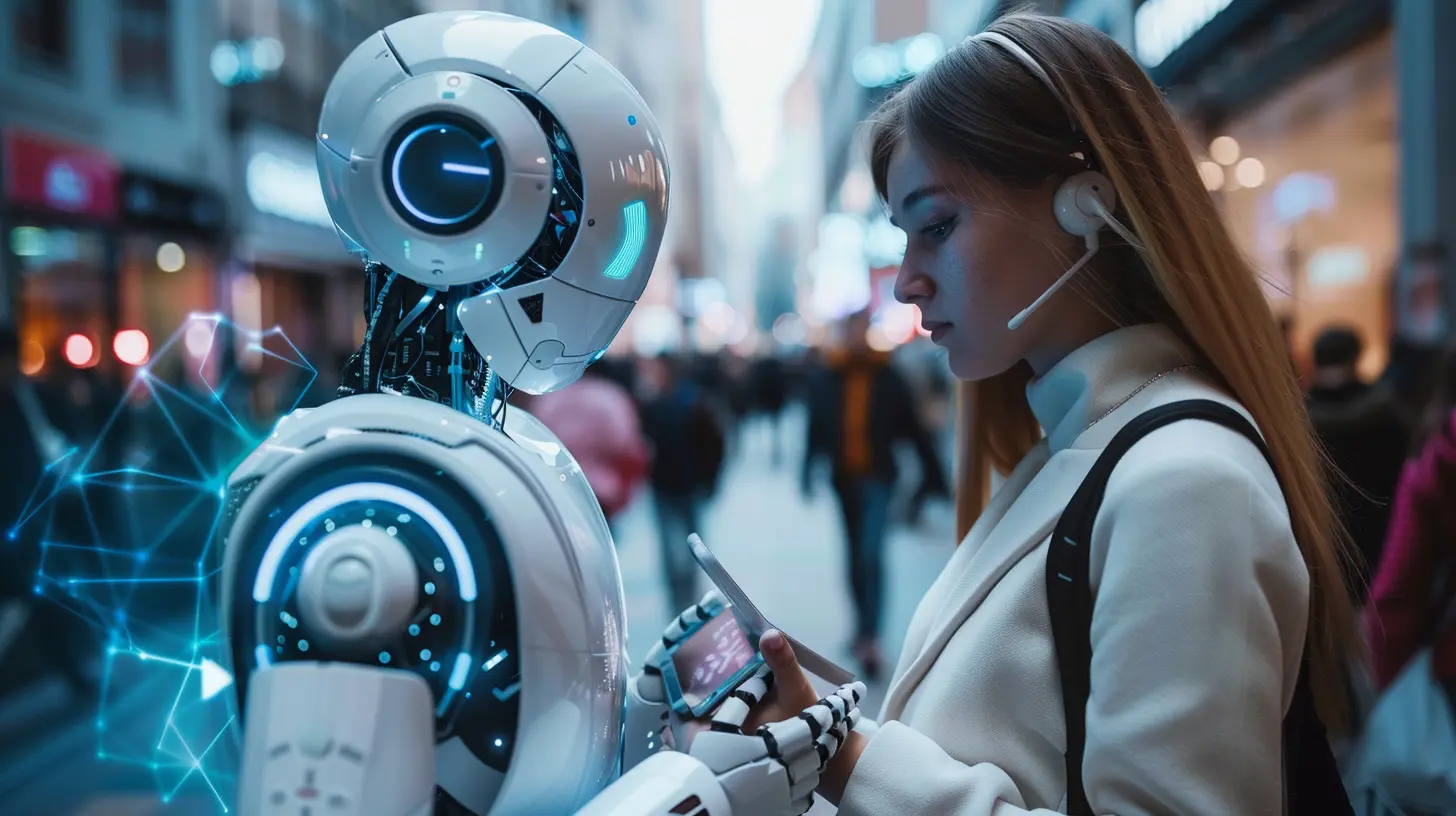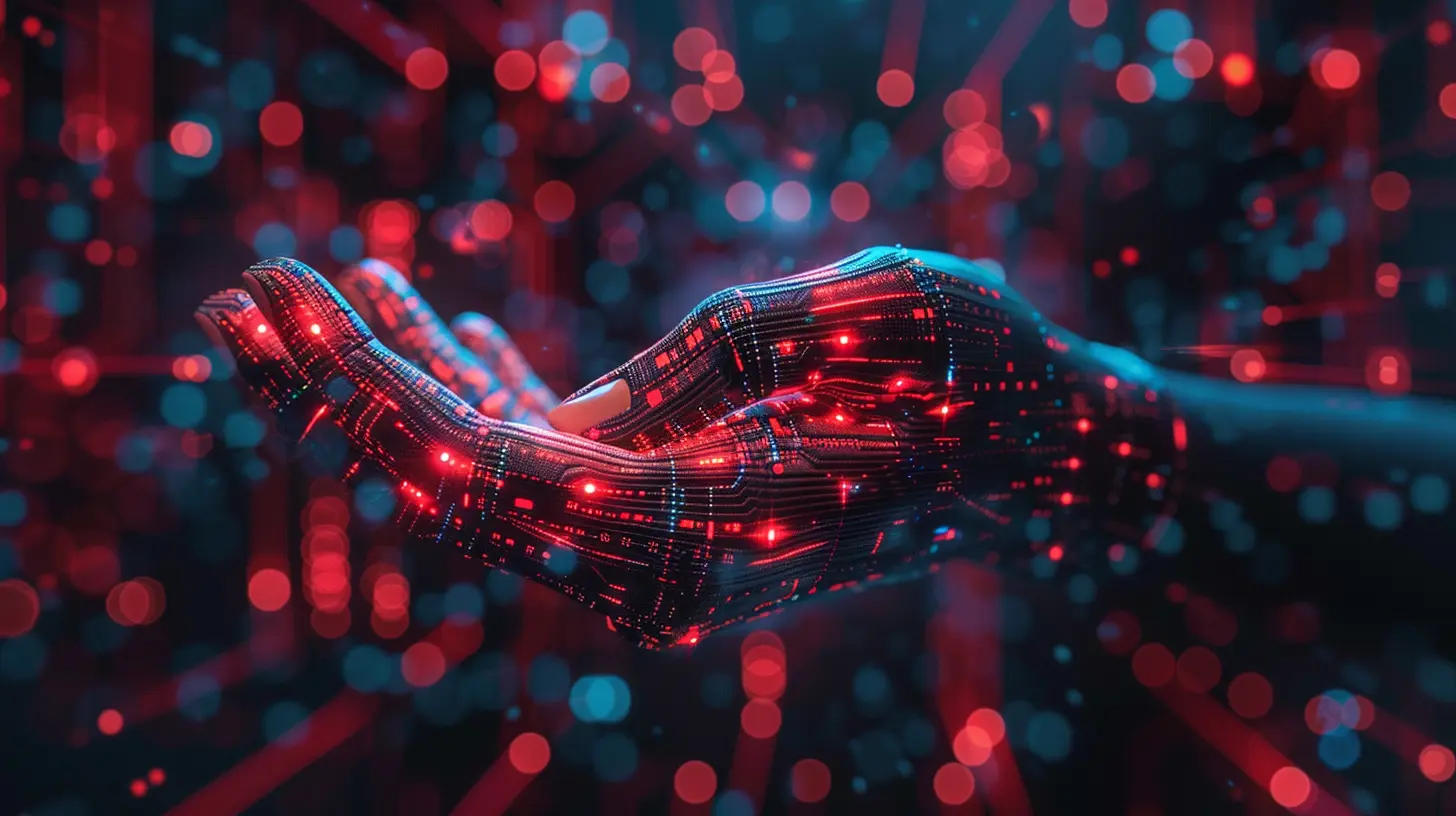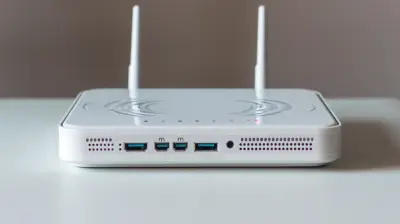How AI is Enhancing Personal Assistants in Your Devices
5 July 2025
We’ve come a long way from the early days of clunky voice recognition software and robotic responses. Today, personal assistants like Siri, Alexa, Google Assistant, and even those built into smartwatches and TVs are smarter, quicker, and surprisingly intuitive. Ever wondered why? The magic sauce is Artificial Intelligence (AI). Yup, it's not just a sci-fi buzzword anymore. AI is behind the curtain pulling strings, making our digital interactions smoother and more personalized than ever before.
In this article, we're going to unravel how AI is enhancing personal assistants in your devices — from smarter responses to next-level personalization and even anticipating your needs before you say a word.
The Evolution of Personal Assistants: From Basic to Brilliant
Remember when virtual assistants could barely set a reminder without fumbling? It was frustrating. Back then, the tech was basic—simple command-following programs that did what you explicitly asked, and that’s it.But fast forward to today, and AI has changed the game. Now, these assistants can handle complex tasks, understand the nuances of human speech, and even learn your habits. It's like upgrading from a flip phone to a cutting-edge smartphone.
The difference? AI, especially advancements in machine learning (ML) and natural language processing (NLP), has made personal assistants less robotic and more… well, human.
Natural Language Processing: Making Conversations More Human
Have you ever noticed how your assistant understands slang, accents, or even when you mess up halfway through a sentence? That’s NLP doing its thing.What's NLP?
Natural Language Processing is a type of AI that helps machines understand, interpret, and respond to human language. It’s kind of like teaching your device to be bilingual—it can now speak and think in “human.”Real-Life Application
When you ask Siri, "Hey, can you remind me to call mom when I get to my car?" it deciphers your intent, checks your location, and sets a contextual reminder. That’s AI and NLP working hand in hand.
Machine Learning: Your Assistant Is Literally Learning from You
Here’s where things get spooky-smart. AI-powered assistants now use machine learning to adapt and evolve based on how you interact with them. The more data they gather (your voice tone, usage patterns, preferences), the smarter they get.Personalized Experiences
Whether it’s suggesting your favorite songs during your morning workout or automatically turning off lights when you say “Goodnight,” your assistant is learning what you like. This is not a one-size-fits-all model anymore. It's custom-crafted assistance.
Context Awareness: Your Assistant Is Paying Attention
AI has given personal assistants a sort of sixth sense—context awareness.Understanding the Bigger Picture
Say you ask, “Is it going to rain tomorrow?” Your assistant doesn't just spit out weather facts. It checks your location, calendar, and maybe even your commuting habits to give you a tailored forecast like, “Yes, rain is expected at 6 AM. Don’t forget your umbrella for your 7 AM commute.”Context-aware AI helps make responses more relevant, timely, and useful.
Voice Recognition: Knowing It's You and Not Your Roommate
You and your roommate might both say, "Play my favorite playlist," but only your device knows your specific preferences.That's Voice Print Technology
AI enables personal assistants to differentiate between voices. This means it can serve up personalized experiences for each member of the household. Want your assistant to only respond to your commands? AI tech has made that possible too.Predictive Intelligence: Your Assistant Thinks Ahead
Here’s where things get really futuristic. AI is now being used to predict your needs before you even voice them.How It Works
Using data from emails, calendars, locations, and even browsing habits, personal assistants can now anticipate actions. Heading to the airport? Your assistant might automatically pull up your boarding pass and give you a traffic update. No need to dig through your inbox or Google Maps.It’s like having a mind-reading assistant that gets you before you get yourself.
Seamless Integration Across Devices
Ever start a task on your phone, and finish it on your laptop or smart speaker? AI is making this kind of cross-device continuity effortless.The Ecosystem Advantage
Thanks to AI, personal assistants now exist on a broader ecosystem—phones, smartwatches, TVs, earbuds, fridges, you name it. If you're in the Apple, Google, or Amazon ecosystem, your assistant follows you everywhere, syncing tasks, reminders, and preferences in real-time.This kind of integration wasn't possible without intelligent data sharing and synchronization made smarter by AI.
Security and Privacy: AI Isn't Just Smart, It's Cautious
Let’s be honest—when we talk about AI and data, it’s normal to get a little nervous. But here's the kicker: AI is also helping keep your interactions safer.Enhanced Voice and Behavior Recognition
AI can now detect anomalies in voice or behavior patterns. So, if someone else tries to access your info using voice commands, the system may block it or ask for confirmation.Plus, newer personal assistants process more data locally (on-device) rather than sending it to the cloud, thanks to AI optimization. This reduces exposure to potential data breaches.
Multilingual Capabilities: Breaking Language Barriers
AI isn’t just making assistants smarter; it's making them more worldly too.Speak Your Language—Literally
From English to Hindi to Swahili, AI-powered assistants can now understand and speak multiple languages. This multilingual support is a game-changer, especially for non-English speakers who can now access full functionality.Some assistants even allow bilingual mode, meaning they can understand and switch between two languages on the fly. That’s brains and brawn.
Accessibility: Making Tech Inclusive for Everyone
One of the most heartwarming impacts of AI in personal assistants is better accessibility.Helping Hand for the Differently-Abled
Voice-based AI assistants allow people with physical disabilities to control devices without needing to touch them. From setting alarms to sending texts or controlling smart home features, it's liberation through technology.AI can also read text out loud, transcribe voice notes, and provide visual recognition for the visually impaired. Truly, it's making tech a more inclusive space.
Real-World Examples: AI Assistants in Action
Let’s talk examples, because what's theory without practice?Google Assistant
With Duplex technology, Google Assistant can make phone calls on your behalf—like booking appointments or reserving tables—sounding eerily human.Amazon Alexa
Alexa's smart routines and Hunches feature allow it to suggest actions or automate chores based on your habits—even when you forget.Apple Siri
Siri now integrates deeply with the iOS ecosystem, offering things like Shortcuts to automate multi-step tasks with a single command.The Future: Where Are We Heading?
So, what's next for AI in personal assistants?- Emotion Detection: Assistants that can detect your mood based on voice tone and respond accordingly.
- Fully Conversational AI: Imagine seamless back-and-forth conversations, with assistants that carry memory from previous chats.
- Smarter Homes: AI assistants deeply connected to IoT devices to control more complex environments with minimal input.
- Total Personalization: Think of a personal assistant that evolves with age, lifestyle, and interests like a digital best friend.
As AI continues to evolve, expect your virtual assistant to become less “assistant” and more “partner.”
Final Thoughts
We're living in an AI-driven world, and personal assistants are one of the clearest, most useful examples of that. They’re in our phones, our homes, even our cars—quietly making life smoother and smarter. Whether it’s helping you remember your partner’s birthday or managing your daily schedule, AI has made personal assistants more than just a helpful tool—they're becoming a digital extension of ourselves.So next time you say, “Hey Google” or “Hey Siri,” take a second to marvel at just how powerful, complex, and yes—personal—these assistants have become. AI isn’t the future. It’s already here, living rent-free in your favorite devices.
all images in this post were generated using AI tools
Category:
Tech TrendsAuthor:

Gabriel Sullivan
Discussion
rate this article
1 comments
Rachel Romero
Great article! It’s fascinating to see how AI is transforming personal assistants, making them more intuitive and responsive. The advancements in natural language processing and machine learning are remarkable, enabling devices to better understand and anticipate user needs. Excited to see what the future holds for this technology!
July 19, 2025 at 2:41 AM

Gabriel Sullivan
Thank you for your kind words! I'm glad you found the article insightful. The future of AI in personal assistants is indeed exciting!

